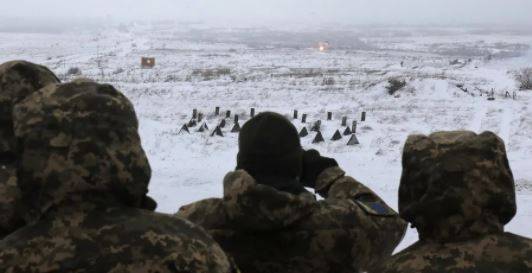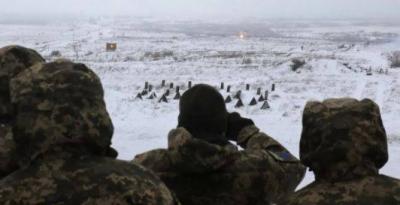Three U.S. officials informed Reuters that Russia's military buildup near the Ukrainian border has expanded to include blood supplies alongside other medical materials that enable the treatment of the wounded. This supports U.S. comments that Russia now clearly possesses the capabilities to take action against its neighbor. The revelation of blood supplies from these officials, who requested anonymity, adds a layer to the growing American concerns that Russia might be preparing for a new invasion of Ukraine as it gathers over 100,000 troops near its border.
On Friday, Russian President Vladimir Putin stated that the United States and NATO had not responded to Russia's main security demands in the standoff over Ukraine, but he expressed readiness to continue dialogue. After weeks of silence, Putin's first reaction came in a phone call with French President Emmanuel Macron, following Russia's receipt of U.S. and NATO responses to its security requests.
The Kremlin reported that Putin told Macron he would study the written responses submitted by Washington and NATO this week before deciding on the next steps. Current and former U.S. officials emphasize that important indicators, such as blood supplies, are crucial in determining whether Moscow is prepared to carry out an invasion if Putin chooses to do so. A French presidential official stated that Putin confirmed his unwillingness to escalate, using the same conciliatory tone as Russian Foreign Minister Sergei Lavrov, who stated that Moscow does not want war.
The Kremlin noted that the focus is on the apparent fact in the U.S. and NATO responses that they did not heed Russia's primary concerns. The Kremlin referred to Russian worries on which Moscow bases its demands, including the non-expansion of NATO, a commitment not to deploy offensive weapons near Russian borders, and the reinstatement of "military capabilities and infrastructure" of NATO to their status before the accession of former Warsaw Pact countries in Eastern Europe. It stated: "The main issue has been ignored. No one should enhance their security at the expense of another state's security."
The United States and NATO remarked that some of Russia's demands are completely unreasonable but also kept the door open for dialogue.
**Economic Sanctions**
The United States and its allies warned Putin that Russia would face severe economic sanctions if it attacked Ukraine. Any new measures would be added to sanctions already imposed since Moscow annexed Crimea and supported separatists in Eastern Ukraine in 2014, despite differing views among Western nations on how to respond as Europe relies on Russia for energy supplies.
NATO Secretary-General Jens Stoltenberg stated on Friday that the alliance is prepared to increase its forces in Eastern Europe, adding that a Russian attack could take various forms, including cyberattacks, coup attempts, or acts of sabotage. Stoltenberg said in Brussels: "From the Atlantic side, we are ready to engage in political dialogue. But we are also prepared to respond if Russia chooses confrontation in an armed conflict."
U.S. Defense Secretary Lloyd Austin told reporters that Putin has acquired the military capability to act against Ukraine at a time when Moscow is bolstering its forces near the border between the two countries. He added: "While we do not believe President Putin has made a final decision to use these forces against Ukraine, it is clear that he now possesses that capability." He explained to reporters that the United States remains focused on countering Russian disinformation, including anything that could serve as a pretext for launching attacks on Ukraine. He continued to assert that the U.S. is committed to helping Ukraine defend itself, including supplying it with additional anti-tank weaponry.
General Mark Milley, Chairman of the U.S. Joint Chiefs of Staff, emphasized that this Russian buildup is the largest in scale and scope since the Cold War. At the same time, three U.S. officials told Reuters that the Russian military buildup near Ukraine's borders has extended to include blood supplies along with other medical materials as another new indicator of Russian military preparations.
**Mixed Messages**
Earlier on Friday, Russia sent the strongest signal yet of its willingness to consider U.S. security proposals, affirming that it does not want to go to war with Ukraine. Russian Foreign Minister Sergei Lavrov told Russian radio stations in an interview: "If it depended on Russia, there would be no war. We do not want wars. But we will not allow anyone to trample on our interests harshly or ignore them."
He added that the U.S. proposals are better than those presented by NATO, without providing details. Although the proposals were not publicly disclosed, both sides expressed their desire to engage in dialogue with Moscow over a range of topics including arms reduction and confidence-building measures. Both ruled out yielding to other demands, such as denying Ukraine NATO membership.




